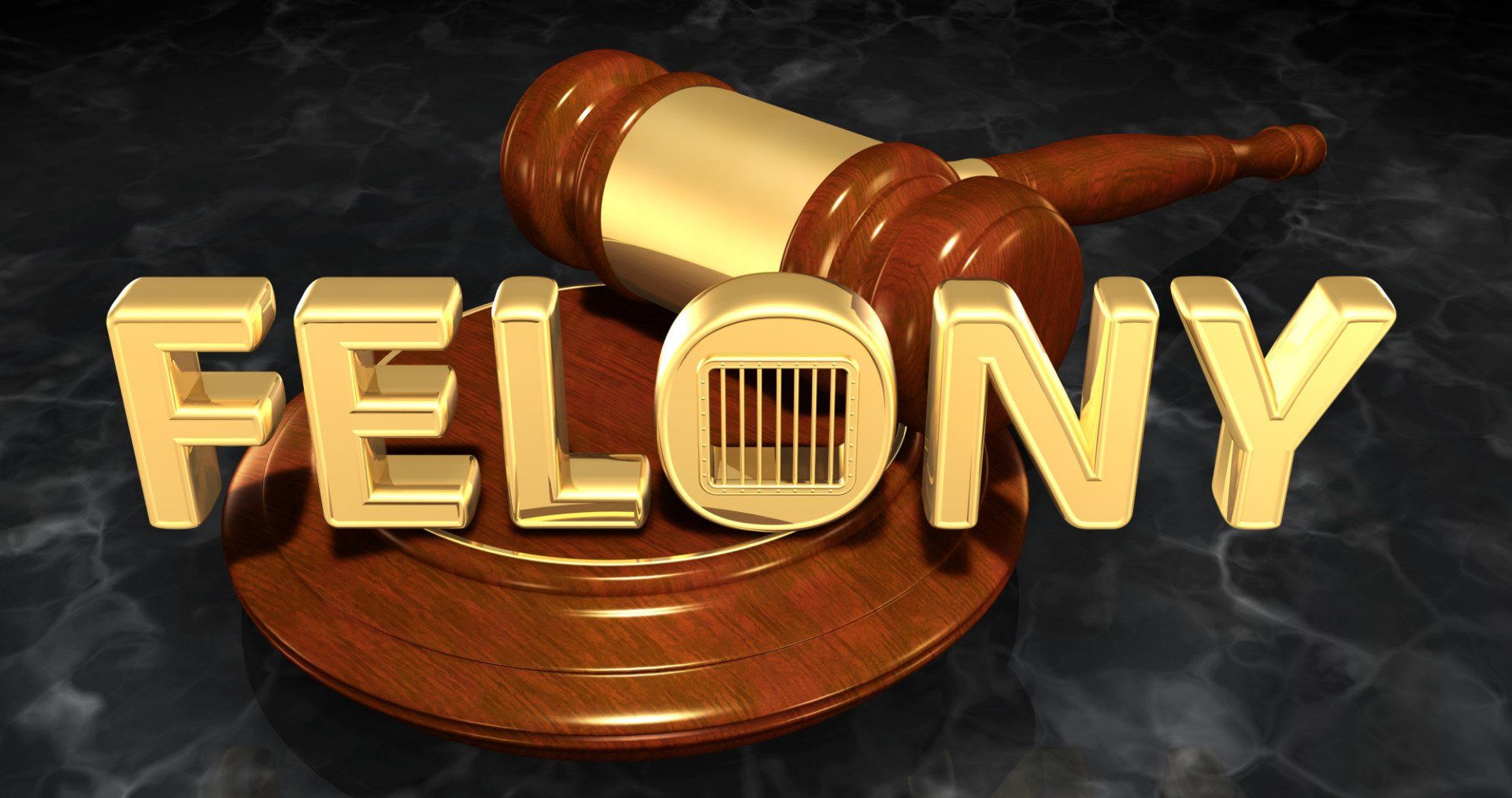Blog Layout
Divorce Advice: 8 Key Steps to Choosing the Right Divorce Lawyer
Jan 15, 2020
The divorce rate in Texas is just over 10%. While the divorce rate is falling both in Texas and nationally, there are still thousands of people getting divorced each year.
If you're contemplating a divorce, you'll find that everyone has a piece of advice or input for you. There is one piece of divorce advice you should definitely follow. Take the time to find the right attorney to advise and represent you.
Follow these eight steps to finding the right attorney for your needs.
If you're contemplating a divorce, you'll find that everyone has a piece of advice or input for you. There is one piece of divorce advice you should definitely follow. Take the time to find the right attorney to advise and represent you.
Follow these eight steps to finding the right attorney for your needs.
1. Choose Your Divorce Process
Before you start looking for a lawyer, you need to decide what you want to do. Are you looking for litigation or mediation? Do you need a lawyer to assist with a collaborative divorce or some other type of divorce proceeding?
Once you determine this, you can start looking for a lawyer that specializes in that type of proceeding. For example, you don't want to hire a lawyer that specializes in mediation when you're facing an ugly litigation battle.
Once you determine this, you can start looking for a lawyer that specializes in that type of proceeding. For example, you don't want to hire a lawyer that specializes in mediation when you're facing an ugly litigation battle.
2. Determine the Legal Service You Need
When you start looking for a divorce attorney, you will see "family law" as their specialty. Divorce is just one segment under the family law umbrella. You need to figure out your legal needs to find the right family law lawyer.
Here are some of the common practice areas that family law lawyers will specialize in:
Here are some of the common practice areas that family law lawyers will specialize in:
- Child Custody
- Child Support
- Divorce
- Property Division
- Paternity Testing
- Adult name change
- Annulment
- Postmarital Agreements/Partition Agreements
- Premarital Agreements
- Protective Orders (Domestic Violence Prohibition)
- Restraining Orders (Domestic Violence Deterrence)
3. What Is Your Budget?
Do not base your entire decision on the cost of the lawyer. There is truth to the saying; you get what you pay for. The best approach is to determine what you can afford and then find the best lawyer possible for that cost.
Don't get hung up on the idea of not wanting to pay for a lawyer. Hiring an attorney will ensure someone is looking out for your interests and rights.
Don't get hung up on the idea of not wanting to pay for a lawyer. Hiring an attorney will ensure someone is looking out for your interests and rights.
4. Get Some Outside Input
Chances are, you know someone who has gone through a divorce. The best way to start looking for your attorney is to ask around. Remember to ask what kind of divorce they had to ensure the lawyer will be the right fit for your needs.
Your second option is to ask for a referral from another attorney. If you know an attorney who is in another area of practice, they may be able to recommend someone they know professionally. This way, you can get the contact information of someone who has a positive professional reputation among their peers.
Your second option is to ask for a referral from another attorney. If you know an attorney who is in another area of practice, they may be able to recommend someone they know professionally. This way, you can get the contact information of someone who has a positive professional reputation among their peers.
5. Look Online
After you've asked around locally, you can head online. Be careful though, do not get sold by a law firm's slick online advertising.
A lawyer's website can be an excellent resource for finding out a firm's specialty. You can also find information about their performance track record and experience.
A lawyer's website can be an excellent resource for finding out a firm's specialty. You can also find information about their performance track record and experience.
6. Read the Reviews
You should also take online reviews with a grain of salt. People are more likely to leave a review when they are upset than when they are happy. People going through a divorce can still feel unhappy despite the lawyer providing outstanding service.
Online rating websites can't always be trusted either. Some charge attorneys for their listings. This means that if a lawyer chooses not to pay, they may end up not getting listed, or worse, have a bad rating.
Online rating websites can't always be trusted either. Some charge attorneys for their listings. This means that if a lawyer chooses not to pay, they may end up not getting listed, or worse, have a bad rating.
7. Meet with Your Top Choices
Before you make a final choice, you need to meet with a few lawyers. Meet with at least two to three lawyers to get a feel for them. It can be frustrating to explain your situation over and over, but it will pay off when you find the right fit.
Pay attention to the attorney's perspective and how they want to handle your case. You may find that you don't agree with your top choice.
Go with your gut feeling; if you don't feel right, then that's not the lawyer for you.
Pay attention to the attorney's perspective and how they want to handle your case. You may find that you don't agree with your top choice.
Go with your gut feeling; if you don't feel right, then that's not the lawyer for you.
8. Create a List of Important Questions
Before you meet with the attorney, create a list of questions. This will help you compare the different lawyers on an even playing field.
You may be mentally all over the place during a divorce, so creating a list of questions will help keep you focused. You should also bring a pen and paper to take notes.
Here are some questions to help you get started:
Do you specialize in divorce?
What type of divorces do you focus on?
How long have you worked in this area of law?
What are your fees?
What are your initial ideas for my representation?
Do you attend continuing education to stay up to date on changing laws?
Follow Your Attorney's Divorce Advice
It can be tempting to pick the first lawyer you come across. After all, no one wants to deal with divorce, so choosing an attorney faster can help make the process go quicker.
Don't make this mistake. Instead, follow the divorce advice in this post and take the time to find the right attorney for you. Look for one that you feel comfortable with and who specializes in the type of separation you're facing.
Contact us today, and let's review your divorce case.
You may be mentally all over the place during a divorce, so creating a list of questions will help keep you focused. You should also bring a pen and paper to take notes.
Here are some questions to help you get started:
Do you specialize in divorce?
What type of divorces do you focus on?
How long have you worked in this area of law?
What are your fees?
What are your initial ideas for my representation?
Do you attend continuing education to stay up to date on changing laws?
Follow Your Attorney's Divorce Advice
It can be tempting to pick the first lawyer you come across. After all, no one wants to deal with divorce, so choosing an attorney faster can help make the process go quicker.
Don't make this mistake. Instead, follow the divorce advice in this post and take the time to find the right attorney for you. Look for one that you feel comfortable with and who specializes in the type of separation you're facing.
Contact us today, and let's review your divorce case.
Share
Tweet
Share
Mail
Wyde Law Blog and Case Studies
By Dan Wyde
•
20 Feb, 2024
PRESS RELEASE FOR IMMEDIATE PUBLICATION

By Dan Wyde
•
05 Oct, 2023
If you have been arrested for DWI in the Dallas Fort Worth area then you have only 15 days from the date of your arrest to request an Administrative License Revocation ( ALR ) hearing. Otherwise your driver's license will be suspended. This is NOT a court date or any date you may have received on your citation. This legal process can be confusing so contact us today by email ( go here ) or calling our office at (214) 521-9100 . Do not lose your right to drive. Call us today so we can help you keep your privilege to drive.
By Dan Wyde
•
18 Apr, 2023
D id you know that in the State of Texas there exists the possibility of a bank not paying out to beneficiaries who are designated on the account's signature card for an account listed as a " Payable On Death " (POD)? Our firm has handled such situations as they rare, and they don't fall under a testamentary asset - meaning that they are not subject to the probate courts. Recommending that clients convert their regular checking and savings accounts to have a POD designation often is used in estate planning , but this converts a testamentary asset into one of the few non-testamentary assets like a term life insurance policy. Several sections of the Texas Estates Code apply here including: Section 113.52 Rights Of Creditors Section 113.04 Types Of Accounts Many others Upon the death of the account holder, the named beneficiary(ies) should receive the remaining funds in the account subject to Texas regulations. So why would the named beneficiary not get access to the funds, especially if there is no lawsuit from other family members or creditors? One of the ways this may happen is when the signature card was signed, dated, and had the named beneficiary(ies) with the payable on death account designation at a bank which later was acquired. While the acquiring bank should have safeg0uards to ensure that the most recent signature card is properly reflected in their computer systems, the ultimate factor is the actual signature card itself. Older account holders may have signed a physical signature card at the original bank, and then they never signed a new signature card (another physical card or digitally) with the new banking institution. Another concern some people have with POD accounts is that the decedent may have named the checking/saving account's beneficiaries in one's Last Will & Testament; but the signature card on file with the bank has a different beneficiary. Since the POD-designated account no longer is a testamentary asset, thus not subject to probate, then this can cause challenges between parties who expect to receive the remaining funds. A bank also may not follow its own steps for checking a signature card before disbursing funds to the incorrect party. Banks in Texas have a step-by-step process which must be followed for POD account fund disbursement. Any missteps in this process can cause significant problems and alter the wishes of the decent as listed on his/her original signature card. This is a complex situation due to the checking/savings account, traditionally considered an estate asset and therefore subject to probate, when the exact same checking/savings account instead has the payable on death designation. Our lawyers can help you with these kinds of confusing situations and other similar estate-related, and other non-testamentary asset-related, situations. Contact us today to schedule your consultation.
By Dan Wyde
•
18 Apr, 2023
The following lists some of the kinds of charges you may face if charged with assault family violence or domestic family violence: Aggravated Assault - Serious Bodily Injury Aggravated Assault - Deadly Weapon Assault By Impeding Breath Or Choking Continuance Violence Against The Family Assault - Bodily Injury / Indecent Assault Terroristic Threat Assault - Offensive Touching Emergency Protective Orders Violation Of Emergency Protective Orders If you are, or someone you know is, facing one of the charges listed above then contact us to schedule your consultation . You may learn more about these kinds of charges from the Texas Family Code, TITLE 4. PROTECTIVE ORDERS AND FAMILY VIOLENCE: Click Here

By Dan Wyde
•
18 Apr, 2023
Did you know that an "affirmative finding of family violence" includes: Being ineligible for any order of expunction or non-disclosure of records. Lifetime ban from owning or possessing any firearms. Not being allowed to be joint managing conservator of your children. If you are in a divorce or in any lawsuit then this affects the parent-child relationship. You risk being deported if you are not a U.S. citizen. There are other concerns as well, so contact us for any assault family violence or related domestic violence charges in Dallas County, Collin County, Denton County, Rockwall County or nearby Texas counties.
About us
Discover more about our firm here: About Us.
Useful Links
Register for our newsletter
Contact Us
Thank you for contacting us.
We will get back to you as soon as possible
We will get back to you as soon as possible
Oops, there was an error sending your message.
Please try again later
Please try again later
© 2024
All Rights Reserved | Website Powered by AutomationLinks





